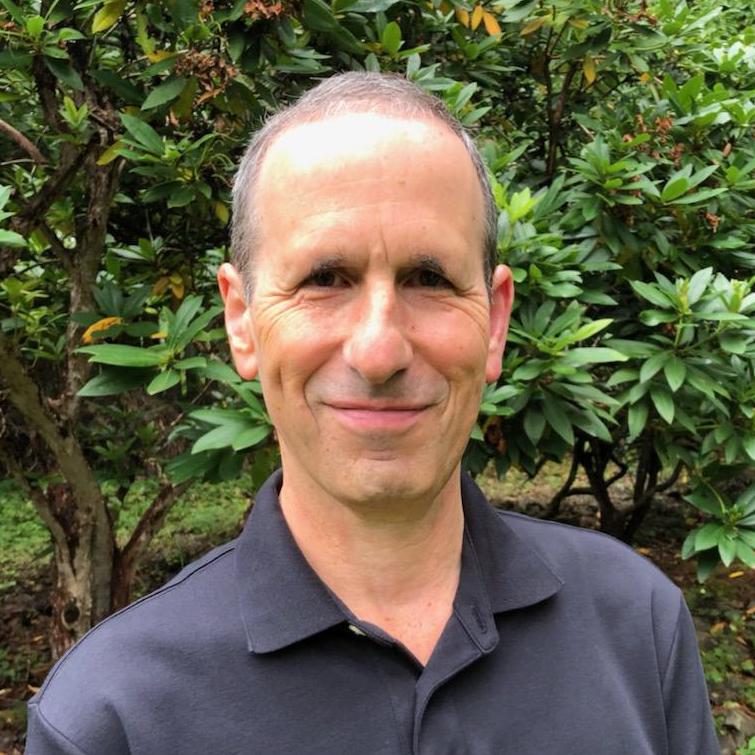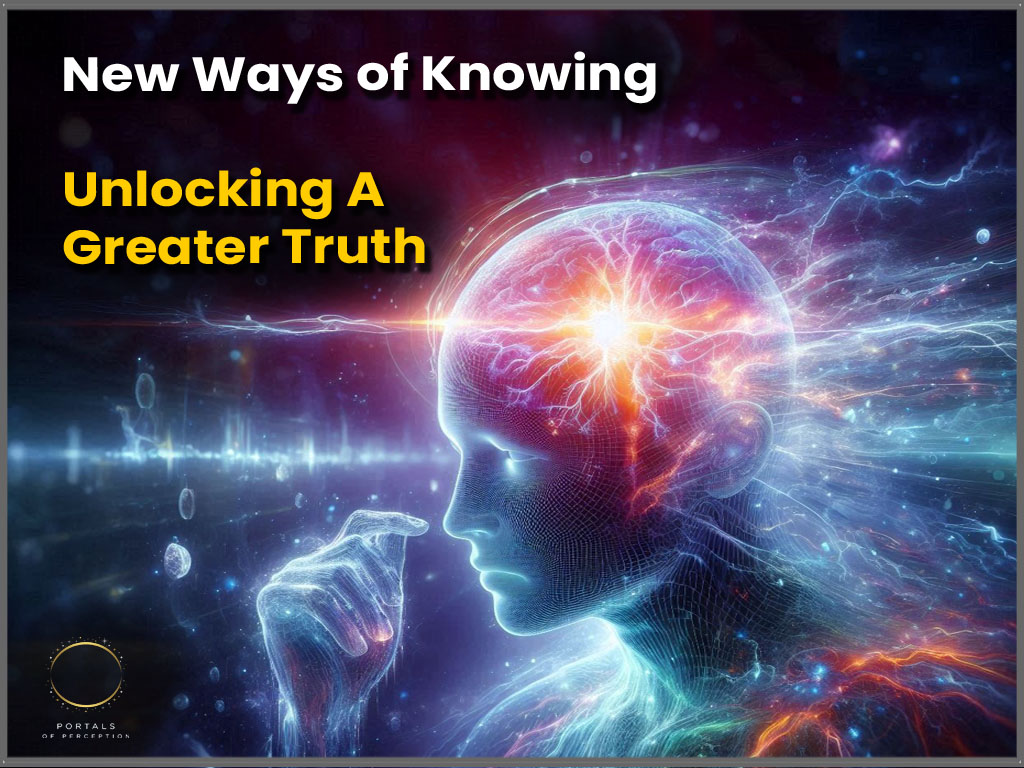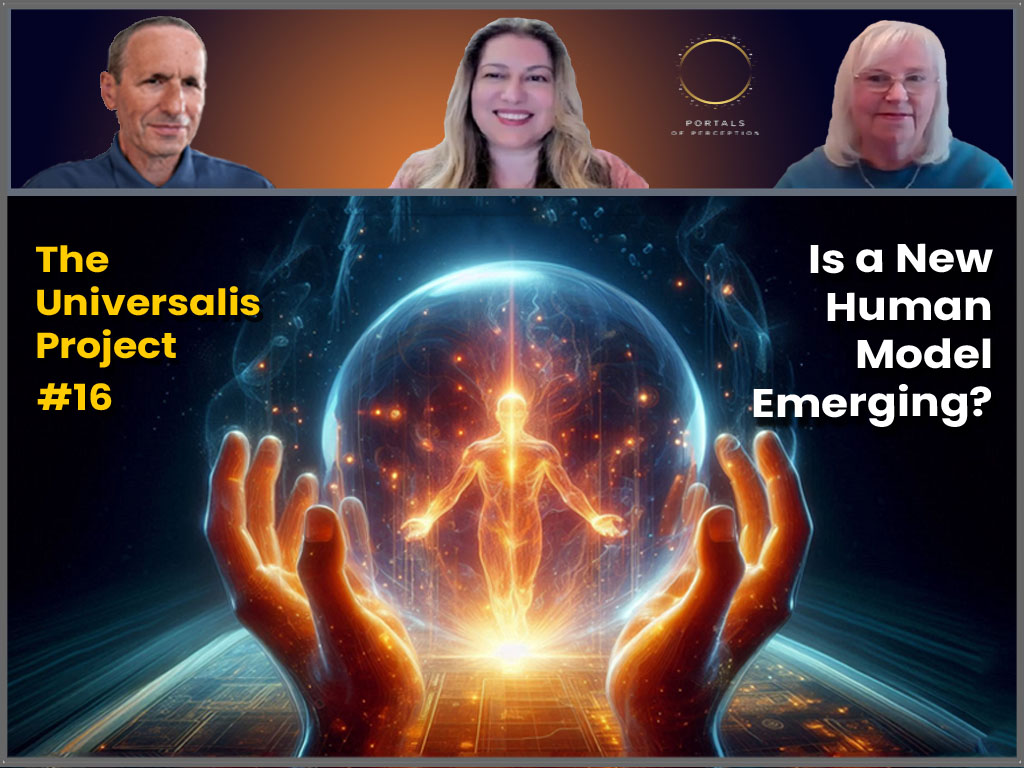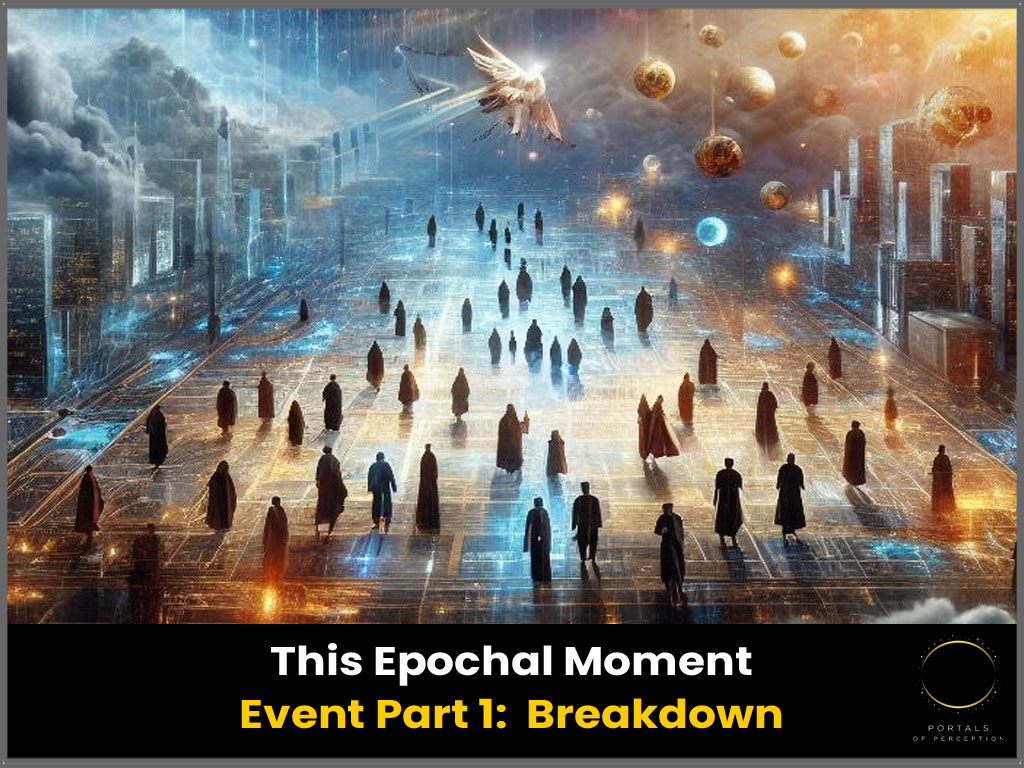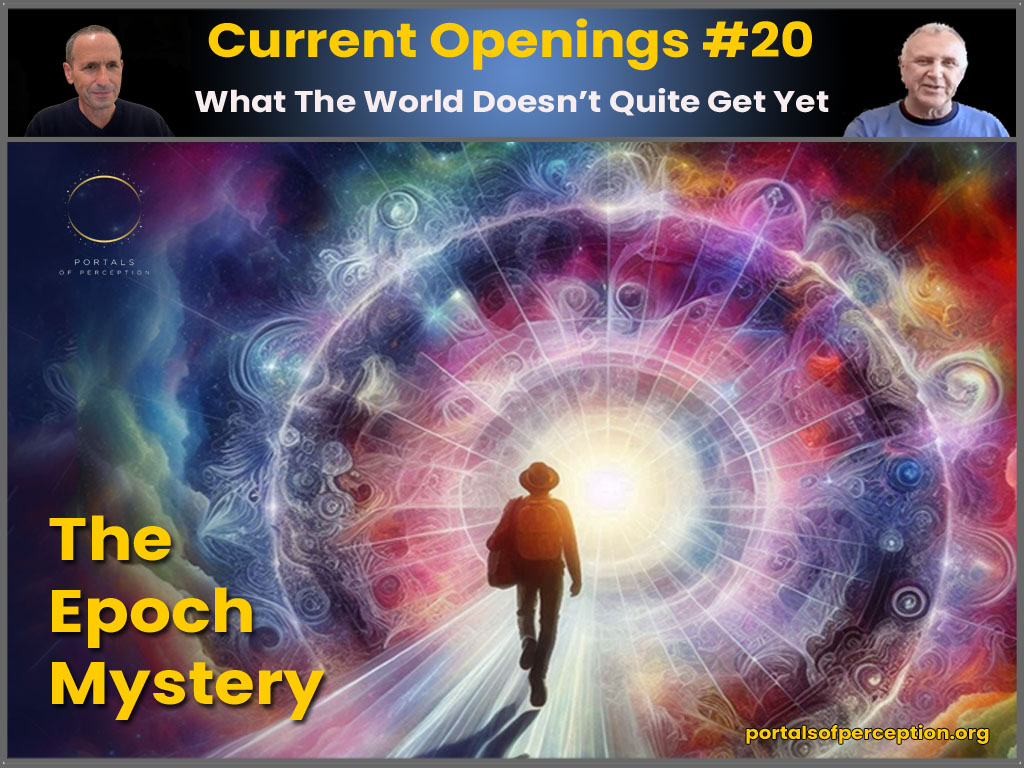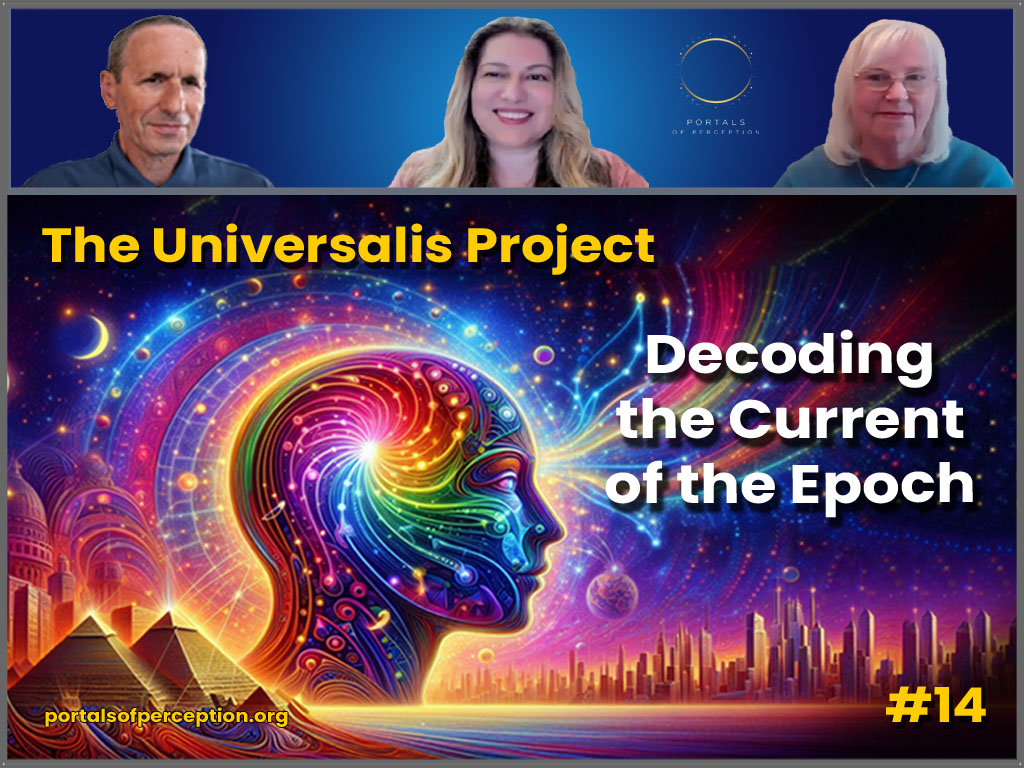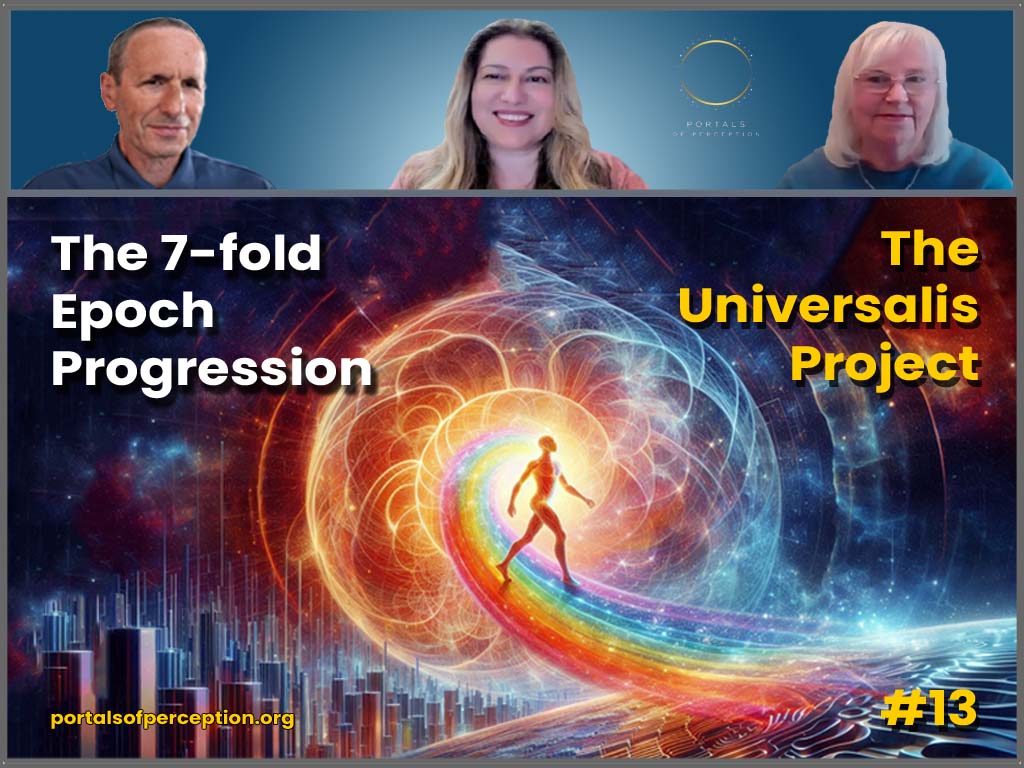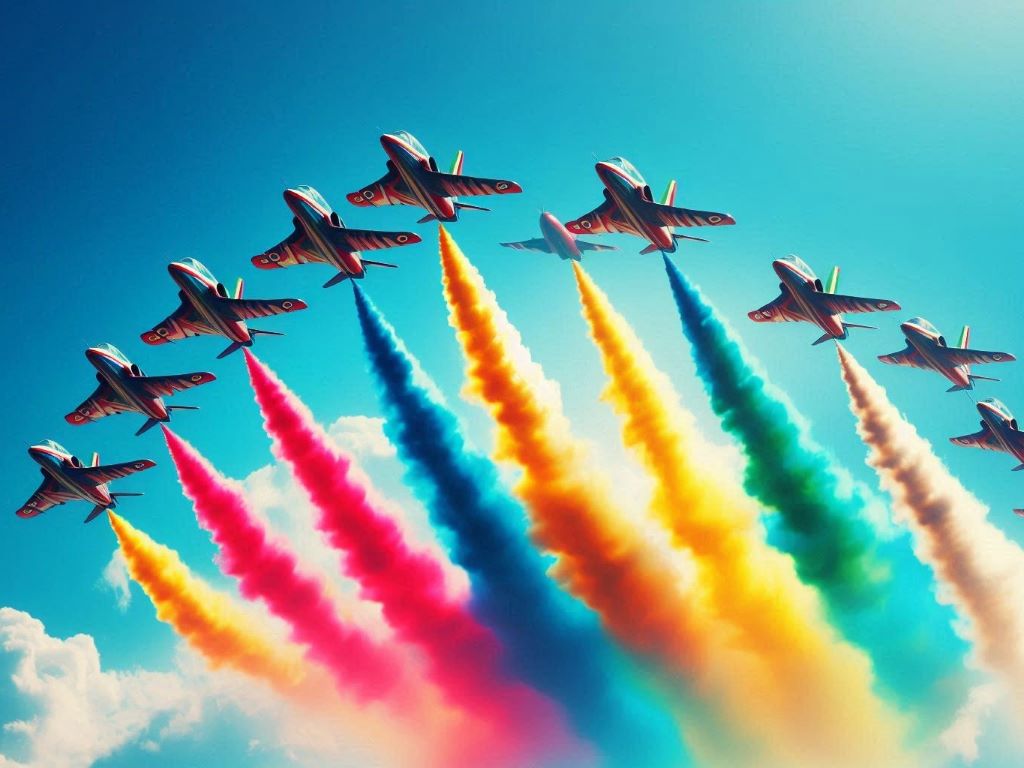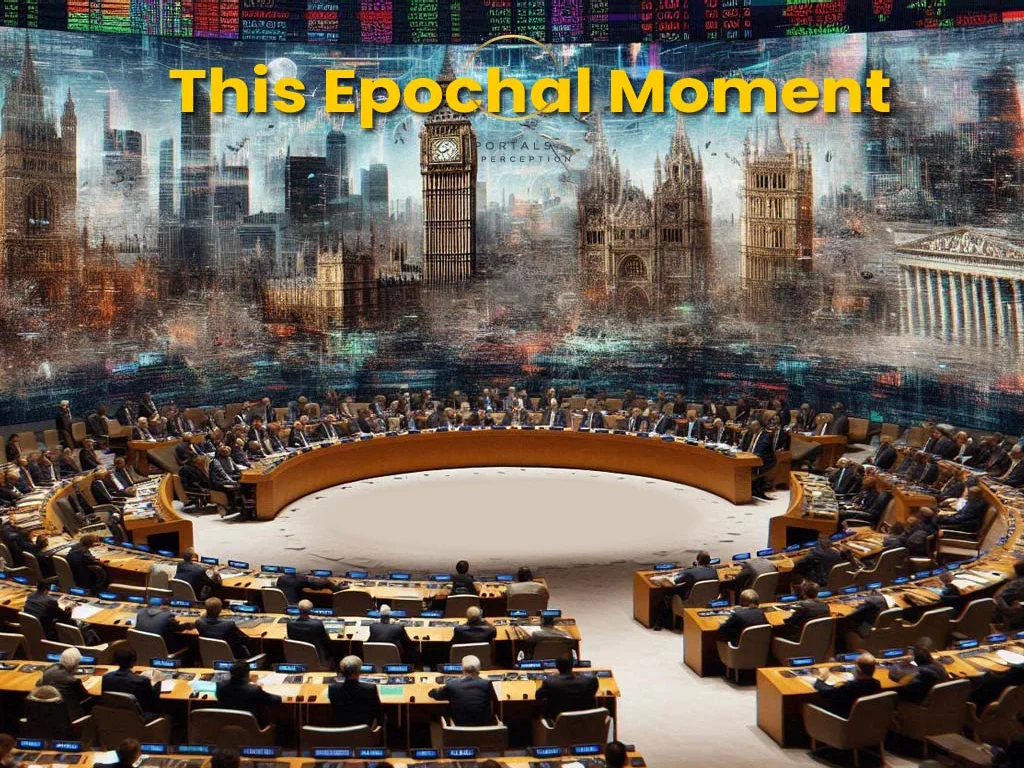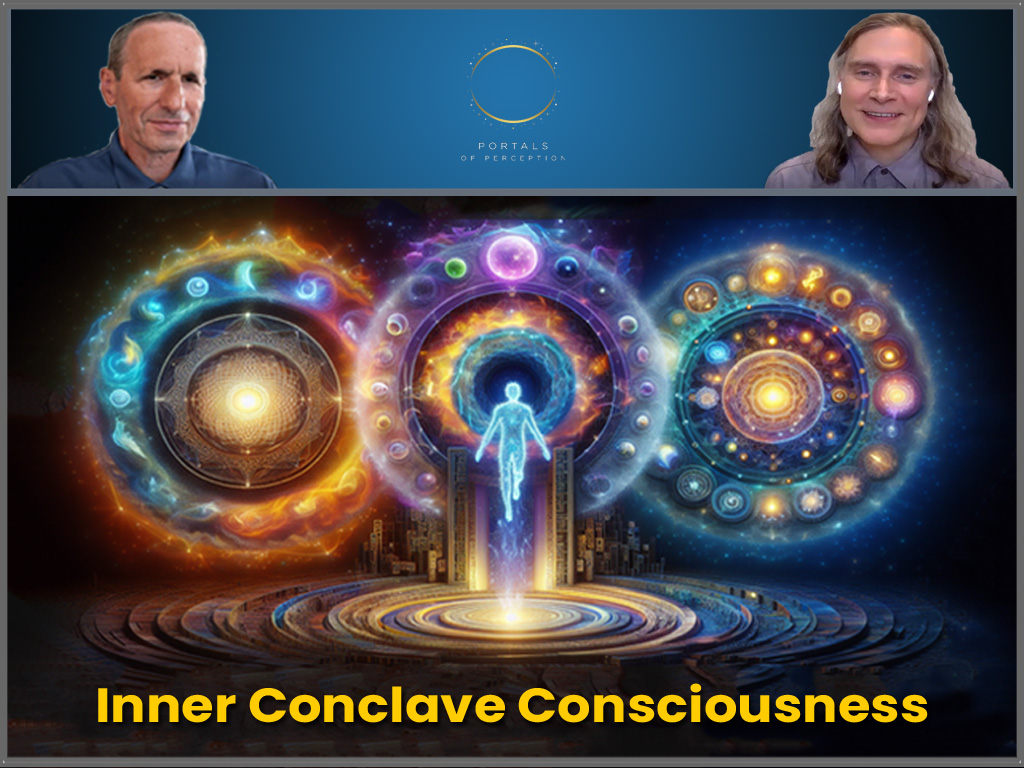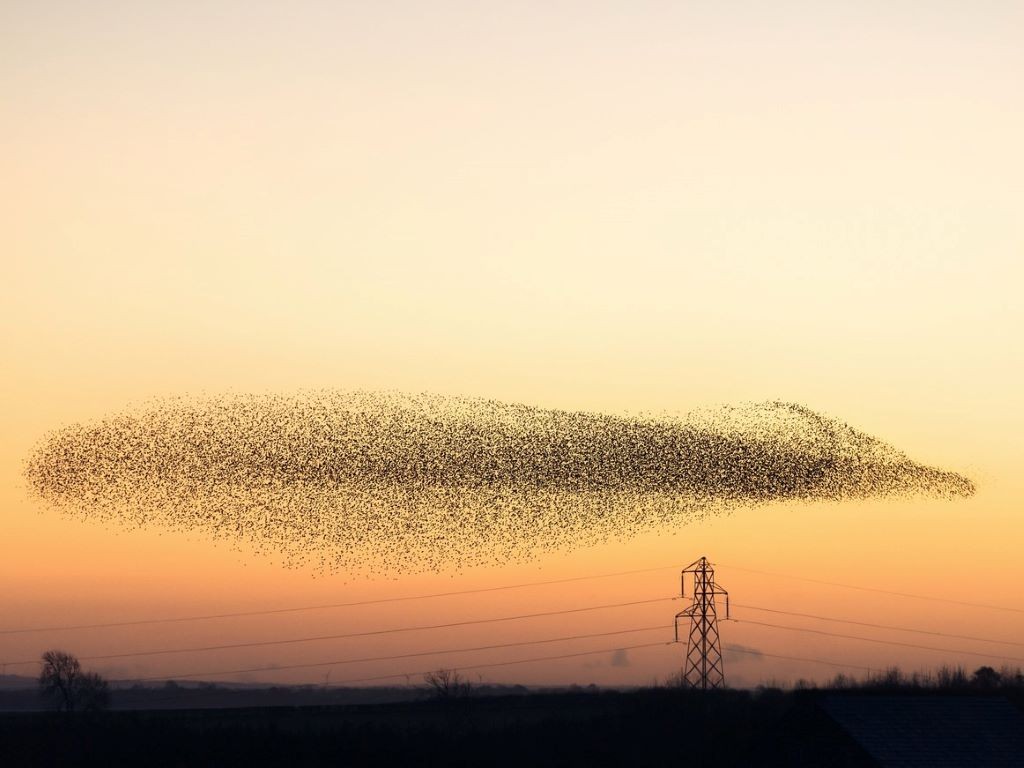
We are always running automatic, repetitive loops as we manage our life in its unfolding, but we can also create new patterns of response that are aligned to the way our systems actually process our experiences, which can bring us greater clarity and consciousness
Aviv: Okay, so we’re saying now let's focus on this fourth level we just framed in the idea of survive, thrive or win, appreciate, perceive, and serve. And, essentially, your question is inviting us into the exploration of: what is actually going on? Can we try to gain external perception?
Gaining external perception is not so easy because we are so much, first of all, inside ourselves, and secondly we are surrounded and crowded by the noise of the media. And it's not
so easy to develop a perspective that's not influenced by the general noise of what surrounds us.
So we started addressing a simple framework three or four weeks ago, around about the beginning of March, when we had our first conversation on this, and we suggested then that we look at three different processes: that there is the coronavirus epidemic, that there is the economic epidemic, and that there is the fear and panic and anxiety epidemic. And we suggested that the second and the third were likely to become more long-lasting - and will carry greater impact - than the coronavirus itself.
And that, in actual fact, what's happening in the second unfolding story is something that we were waiting for for perhaps a long time, certainly for several years. And that the coronavirus occurrence was simply a trigger for something that was in the system and was waiting to happen for quite a while.
And what I propose is that we inquire: why was the coronavirus a perfect trigger to this perfect storm that we are now experiencing in the global economy and global society? And then ask, even deeper, what is it that we can understand and appreciate about this change that's unfolding now? And how will those perspectives and insights guide us so that we are better prepared?
So, again, this is where the beauty is, if you do level four of this Maslow-like Pyramid of Response where we said you perceive better, you can also climb down the ladder back to level one and level two, which is to survive and to thrive, and be more effective, because you bring into it now greater perspective and perception that will guide your action in a better way.
So, okay, let me ask this question: what is it we understand about this global crisis? What is the meta crisis that's unfolding? What is causing it? What is it that we're seeing in this global event? Because if you look just for a minute at the coronavirus level of this experience, if you think about the World Health Organization, they were like a little critter walking down on the beach when a huge tsunami wave was heading to shore, I mean, it was totally unequipped, totally inadequate in terms of response. And what we are seeing is that there is a bigger process that's unfolding. And that absolutely nothing in the global system was ready to address, ready to meet, ready to contain, that event.
Here is a way to think about it: So imagine that you have a pain in your right foot. Okay, so let's say you're sitting now, but let's say you get up and you need to start walking around, your body will organize to contain and manage that pain. But what we have is a global event where there is no global system; there is no global body that is orchestrating to respond and meet or contain the set of challenges that we're facing. And the question to reflect on is, why is that the case? What is actually happening? And what can we perceive and understand about this process?
So what comes to mind when I frame these questions? I know I'm hitting you with big questions, but why are we perfectly incapable, that is, as the global human body, to respond to the challenge? Whereas if you think about it, if I need to scratch here, there is no problem for my body to orchestrate itself and bring the other finger and scratch there. But that's not the current situation. If you look at the global situation, the planet, humanity, as a body, we don't seem to be able to coordinate even to bring two hands together. Like if there is something heavy to lift I can lift with two hands. This happened to be a glass of water with a bit of lime inside, no vodka here, just water, that I can lift with one hand, but we don't seem to be able to do this globally. So why is that the case?
Natalie: Maybe because we know we don't act like one person, everyone takes care of his own country, like it's not something really global. It seems that there is something global, but it's not like that.
Aviv: You're absolutely right. I mean, we did talk last week about this idea that this is the first personal global event of its kind. But you're absolutely right. We are not one body, we're not able to respond to it as one orchestrating body. But what else?
Amitay: The first thing that came to my mind was the fact that, in order to survive, we have to collaborate. And that reminds me of my army training when we started as a small team and they gave us all these tasks that you have to collaborate in order to succeed in the task. Like you have to go over kind of between a net of a rope and you can only do it if everybody collaborates with everybody. And I think this is kind of what's happening to the world because of many things, the fact that it hurt only adults, and everybody, or not only, but mostly, and everybody has some people that are in a risk group, and the fact that all the countries are kind of we live in a global world, so every country affects other countries or... before they closed the borders.
I think you skipped two levels. So the first two levels, the driving impulse of the first two levels is self. I want to survive, I want to win and thrive.
The third layer is where we begin to shift from self to the other people around us - in the broadest possible sense. And I call it appreciate. We can appreciate, for example, the courage of the health professionals that are putting their lives at risk because they feel absolutely committed to serve the people that are in need. Because that was the oath they took professionally.
We can appreciate other people that report the news from places that are not comfortable. We can appreciate people that bring to the table ingenuity and new ideas how to solve problems, and we can appreciate the people that are able to think clearly. So there is much to appreciate around us, and also with people close to us. And we do that we also empower and augment those very same qualities in ourselves, we learn to also appreciate ourselves?
I think the fourth layer in this Maslow hierarchy of response is, what you alluded to, is actually trying to perceive. So I'm trying to survive first, I'm trying to win second, then I extend myself. I appreciate the people around me, their generosity, their kindness. Now when I've done that, I can aspire to now try to perceive the situation for what it is, what is actually going on globally? What is a way to develop a deeper, more profound, more holistic appreciation? And in a minute, I'll have much more to offer about that layer of response.
So what would be the number five? What would be the next layer of response?
Amitay: I already gave you the answer. I said something more global about maybe looking at the situation as the humanity.
Aviv: Right.
Amitay: Yes.
Aviv: Right. Well, I will propose that, so that's partly what I meant in perceive the global picture, I propose that the higher level of response on the Maslow pyramid here is to serve. We started with I'm trying to survive. At the highest level I'm serving others. It's the nurse that shows up in the morning after only a very few hours of sleep to respond to struggling, sick patients. And he or she, they practice with devotion, with care, with sensitivity, with compassion at the highest level of response. And in a way they put their life in the trust of their service. So, and some, because of that, find immunity, and some get impacted in one way or another.
So, these are five levels of response in this environment. And the reason I propose those five levels is because you can actually measure, in yourself, during the day, where are you? Am I right now in the survive energy? Am I right now in the trying to win and gain advantage? Nothing wrong with that; it's completely natural. Am I shifting into appreciating people around me? Am I stepping back to try to perceive? What am I seeing? How do I read the trends? What is the global picture that's unfolding? Or am I leaning forward to be in service to the people that need me most?
And no one of us, no one can be all the time in number four or number five. What I'm proposing is developing an internal calibration, to be attuned inside to the different energy, and the different experience, and the different state that will accompany each of those five inner locations, or strategies, or levels of response.
So how about that as a starting place, while we are studying and trying to understand what is going on, while we study the outside, the environment, the global picture, that we study ourselves on the inside at the same time while we're doing that?
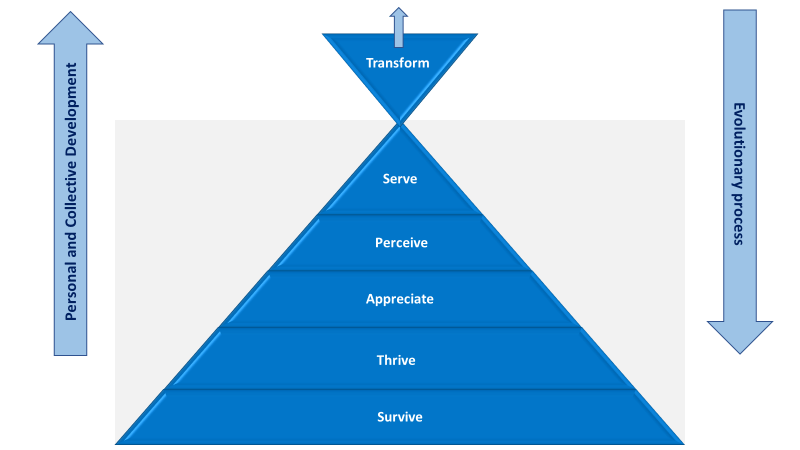
You are where? We can plot our responses to many situations somewhere on this pyramid. And the more consciousness we are able to apply to our life processes, the more we are choosing how we respond, rather than just reacting, which leads us to the doorway of learning how to elevate, energetically, the actions of our lives.
